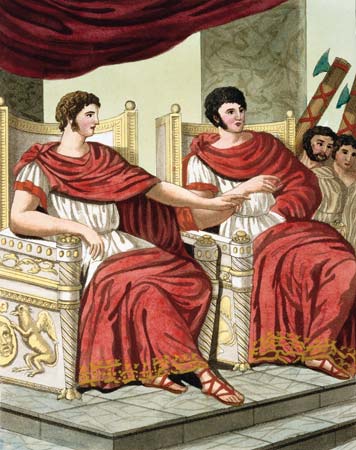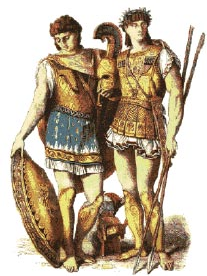Footnotes were written by Peter R. Mitchell and John Schoeffel, the editors.
The following excerpt appears on pp. 227-8 of Chapter Seven: Intellectuals and Social Change
. . .
Marxist “Theory” and Intellectual Fakery
WOMAN: Noam, apart from the idea of the “vanguard,” I’m interested why you’re so critical of the whole broader category of Marxist analysis in general-like people in the universities and so on who refer to themselves as “Marxists.” I’ve noticed you’re never very happy with it.
CHOMSKY: Well, I guess one thing that’s unattractive to me about “Marxism” is the very idea that there is such a thing. It’s a rather striking fact that you don’t find things like “Marxism” in the sciences — like, there isn’t any part of physics which is “Einsteinianism,” let’s say, or “Planckianism” or something like that. It doesn’t make any sense –because people aren’t gods: they just discover things, and they make mistakes, and their graduate students tell them why they’re wrong, and then they go on and do things better the next time. But there are no gods around. I mean, scientists do use the terms “Newtonianism” and “Darwinism,” but nobody thinks of those as doctrines that you’ve got to somehow be loyal to, and figure out what the Master thought, and what he would have said in this new circumstance and so on. That sort of thing is just completely alien to rational existence, it only shows up in irrational domains.
So Marxism, Freudianism: anyone of these things I think is an irrational cult. They’re theology, so they’re whatever you think of theology; I don’t think much of it. In fact, in my view that’s exactly the right analogy: notions like Marxism and Freudianism belong to the history of organized religion. So part of my problem is just its existence: it seems to me that even to discuss something like “Marxism” is already making a mistake. Like, we don’t discuss “Planckism.” Why not? Because it would be crazy. Planck [German physicist] had some things to say, and some of them are right, and those were absorbed into later science, and some of them are wrong, and they were improved on. It’s not that Planck wasn’t a great man-all kinds of great discoveries, very smart, mistakes, this and that. That’s really the way we ought to look at it, I think. As soon as you set up the idea of “Marxism” or “Freudianism” or something, you’ve already abandoned rationality.
It seems to me the question a rational person ought to ask is, what is there in Marx’s work that’s worth saving and modifying, and what is there that ought to be abandoned? Okay, then you look and you find things. I think Marx did some very interesting descriptive work on nineteenth century history. He was a very good journalist. When he describes the British in India, or the Paris Commune [70-day French workers’ revolution in 1871], or the parts of Capital that talk about industrial London, a lot of that is kind of interesting — I think later scholarship has improved it and changed it, but it’s quite interesting.5
He had an abstract model of capitalism which — I’m not sure how valuable it is, to tell you the truth. It was an abstract model, and like any abstract model, it’s not really intended to be descriptively accurate in detail, it’s intended to sort of pull out some crucial features and study those. And you have to ask in the case of an abstract model, how much of the complex reality does it really capture? That’s questionable in this case — first of all, it’s questionable how much of nineteenth-century capitalism it captured, and I think it’s even more questionable how much of late-twentieth-century capitalism it captures.
There are supposed to be laws [i.e. of history and economics]. I can’t understand them, that’s all I can say; it doesn’t seem to me that there are any laws that follow from it. Not that I know of any better laws, I just don’t think we know about “laws” in history.
There’s nothing about socialism in Marx, he wasn’t a socialist philosopher — there are about five sentences in Marx’s whole work that refer to socialism.6 He was a theorist of capitalism. I think he introduced some interesting concepts at least, which every sensible person ought to have mastered and employ, notions like class, and relations of production …
5. For Marx’s works that are mentioned in the text, see Karl Marx, “The Civil War in France” (1871)(on the Paris Commune); “On Imperialism in India” (1853)(on the British in India); Capital, Vol. I (1867)(on industrial London).
6. On the lack of discussion of socialism in Marx’s work, see for example, Daniel Bell, The End of Ideology: On the Exhaustion of Political Ideas in the Fifties, New York: Free Press, 1960, pp. 355-392 (“Two Roads from Marx”). An excerpt (pp. 368-369):
The paucity is extraordinary. In an address to the General Council of the International Workingman’s Association, published as The Civil War in France, Marx said, at one point in passing, that communism would be a system under which “united cooperative societies are to regulate the national production under a common plan,” but nothing more. . . . In only one other place did Marx elaborate any remarks about the future society — the testy letter which came to be known as The Critique of the Gotha Programme. In 1875 the rival Lasallean and Eisenacher (Liebknecht, Bebel, Bernstein) factions met in Gotha to form the German Socialist Workers Party (Sozialistische Arbeiterpartei Deutschlands). As a political party, the socialists were confronted, for the first time, with the task of stating a political program on transition to socialism. Taking its cue from the [1871 Paris] Commune, the Gotha program emphasized two demands: the organization of producers’ co-operatives with state aid and equality.Marx’s criticism was savage. The demand for producers’ co-operatives, he said, smacked of the Catholic socialism of Buchez (the president of the Constitutional Assembly of 1848), while the demand for the “equitable distribution of the proceeds of labour” was simply a bourgeois right, since in any other society than pure communism the granting of equal shares to individuals with unequal needs would simply lead to renewed inequality. A transitional society, Marx said, could not be completely communal. In the co-operative society, based on collective ownership, “the producers do not interchange their products.” There would still be need for a state machinery, since certain social needs would have to be met. The central directing agency would make deductions from the social product: for administrative costs, schools, health services, and the like. Only under communism would the State, as a government over persons, be replaced by an “administration of things. . . .” [D]espite his theoretical criticisms of the transitional program, there is little in the Critique of a concrete nature regarding the mechanics of socialist economics either in the transitional or the pure communist society.


